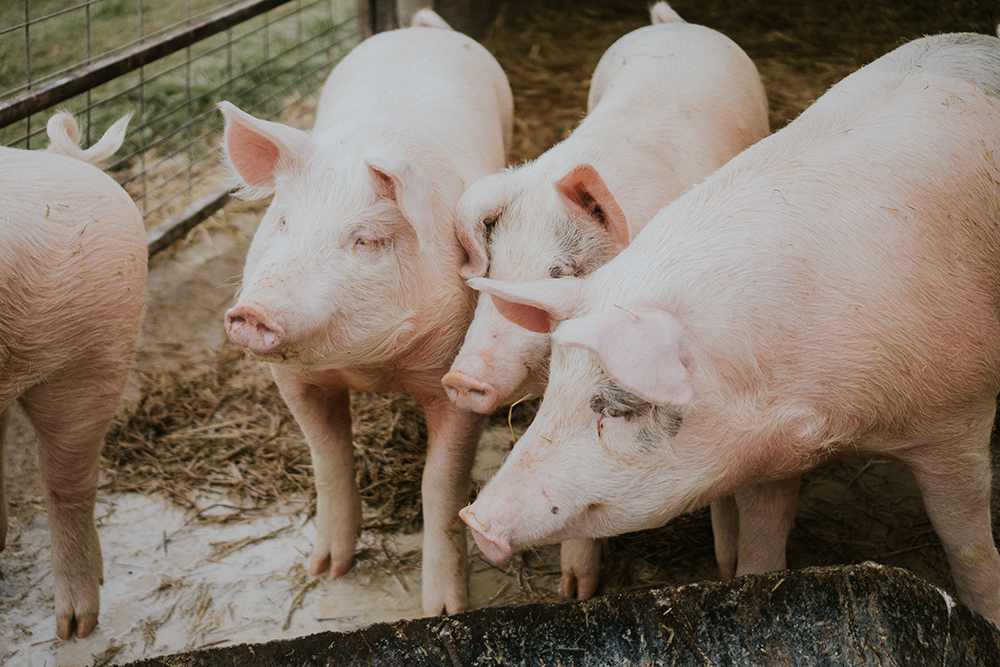Have you heard the latest from Asia? It’s the stuff of nightmares; millions of pigs are being slaughtered due to an epidemic of African Swine Fever in the largest animal disease outbreak that the world has ever seen. Chinese, Vietnamese and Cambodian pig farmers are suffering unprecedented losses, with neighbouring nations on high alert as the virus continues to infiltrate. The effects are being felt on a global scale, as the demand for and price of imported pork from places like Europe, Canada and Brazil is making its way half-way across the world to Asia. There’s alarming concern, though, that we aren’t taking this outbreak seriously enough.

African Swine Fever results in haemorrhagic fever in domestic pigs, causing death as quickly as a week after infection. It’s endemic to sub-Saharan Africa, though now found across the world. Once an animal has been infected with the virus, its temperature rises rapidly. Soon after, it loses its appetite, struggles to breathe and stand, develops vomiting and diarrhea and then eventually dies. It’s often referred to as “pig Ebola” (!). The virus is highly contagious and can survive for several months in processed meat and several years in frozen samples.
The question you’re probably asking is, “yes, but can it infect humans?!” The answer is no, but that’s not an answer set in stone. The reason that viruses are so deadly is that their ability to mutate is really rather impressive. Think of the flu, for example, and how upgraded vaccines must be designed each season to keep up with new strains. With pig physiology being rather similar to our own, there’s no telling whether this DNA might one day before too long put humans at risk too.
Looking at the majority of news stories covering this topic right now, one theme runs strong: that of the economical losses. I get it, it’s old paradigm thinking: emphasizing scarcity and the impact on finances as though that’s our chief concern. But I ask you this: would it not be wise to take this catastrophic outbreak as a warning sign that we better get our act together fast? Next time we might not be so lucky. If we have a life-threatening global epidemic on our hands, the last thing on our minds will be the so-called economic losses.
Imagine how different the headlines would be if African Swine Fever was fatal to humans. It really is only a matter of time before said headlines sweep the media if we keep thinking that factory farming is the answer to the increasing global demand for food. Advocates for this intensive means of animal agriculture have got it so, so wrong. It is past time we wise up to the error of our ways.
Factory farming poses a myriad of risks to our own health and that of the environment, not to mention the immense cruelty involved in such a set-up. There are the growth hormones that negatively impact our endocrine system, the wisespread antibiotic use contributing to resistant strains of bugs that threaten the immunocompromised amongst us, and the toxic fecal run-off that stinks out entire towns and decimates once-pristine waterways.
We’re advocates for plant-based diets here at Peaceful Dumpling. Some of us do it for the animals, others for health reasons and others again for the environment. It’s your choice how you live your life, but if you aren’t already, I strongly encourage you to cut back on your consumption of animal products—particularly if you are supporting factory farming. It’s unethical and totally unnecessary.
It’s entirely illogical polluting ourselves and our environment all for the sake of cheap meat when there are so many great plant-based alternatives. Ethically, it makes no sense to let famine prevail amongst millions of people in numerous countries when there would be more than enough food for our global population if we stopped growing crops to go to animals and instead allocated arable land to primary crops (this, by the way, is estimated to be able to feed an extra 4 billion people).
The health benefits of a well-balanced vegan diet are unparalleled, with protection against hypertension, obesity and type-2 diabetes amongst others. Plus, if we make plants our number one priority, we can implement smart urban growing rather than continuing with the deforestation of acres upon acres of native woodland and rainforest, contributing to climate change and catastrophic losses in biodiversity.
Dead zones in our rivers, soil erosion and inhumane conditions on a scale not like anything we’ve ever seen before. Will it really take an outbreak that threatens the future of civilization for us to learn from our mistakes? Boy, I sure as hell hope not.
Are you concerned about the recent outbreak of African Swine Fever? What can you do to help put an end to factory farming near you?
Also by Kat: Abortion Bans Set Back Women’s Rights To New Low Since 1973—What To Know
Yo-Yo Sleep Habits Are Messing With Your Metabolism, Just Like Inconsistent Dieting
Get more like this—Sign up for our daily inspirational newsletter for exclusive content!
__




